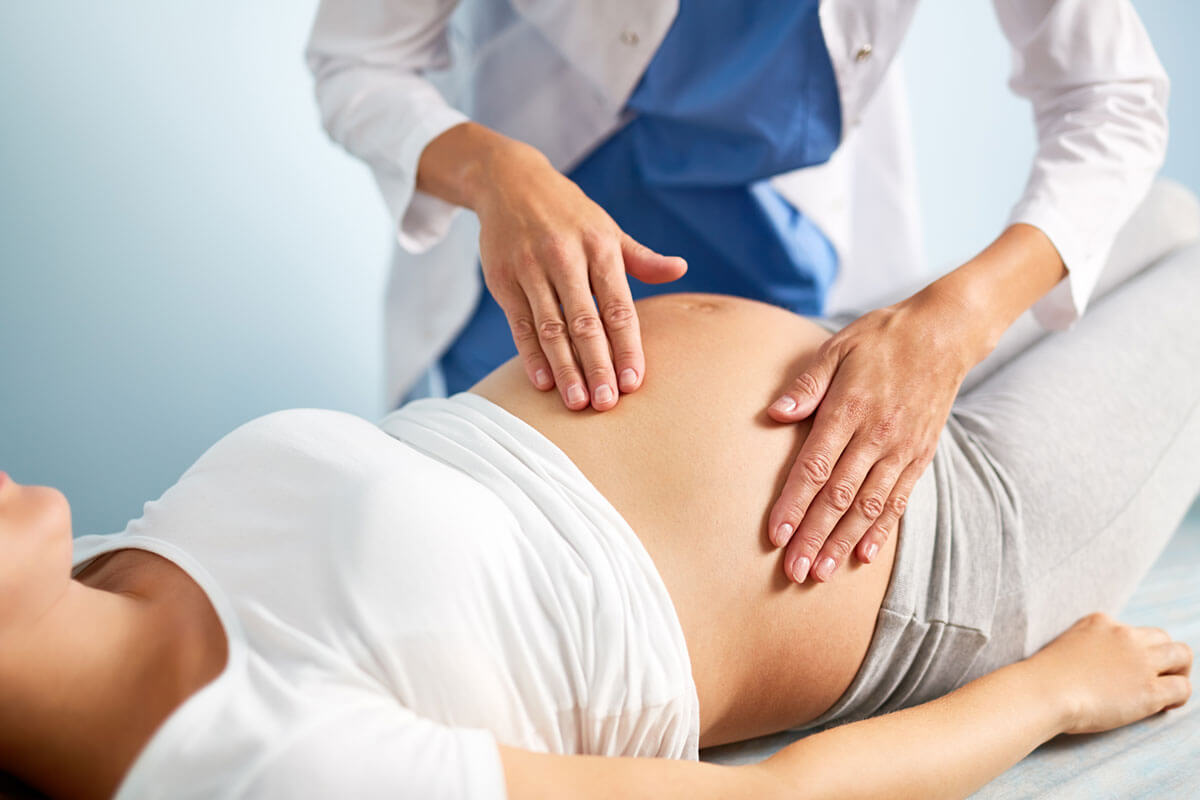Maternity & Obstetrical
Maternity and Newborn Health Care info to help you through the nine months and after.
What are the differences between Maternity & Obstetrical? Obstetrics is concentrated on pregnancy, childbirth and the postpartum period. As a medical specialty, obstetrics is combined with gynecology under the discipline known as Obstetrics and Gynecology (OB/GYN), a surgical field.
The following information is provided by the Society of Obstetricians and Gynaecologists of Canada (SOGC), one of Canada’s oldest national specialty organizations. Established in 1944, the Society’s mission is to lead the advancement of women’s health through excellence and collaborative professional practice.
Obstetrical & Delivery
Routine tests
A variety of recommended tests will be part of your routine care during pregnancy. Various urine and blood tests, dating and anatomic ultrasounds are all part of helping ensure that you and your baby are healthy.
Routine ultrasound
The results of ultrasound testing provide you and your health care provider with critical information about you and your baby. The most accurate way to “date” your pregnancy is with early ultrasound. The Society of Obstetricians and Gynaecologists of Canada recommends that all women have two ultrasounds: one “dating” ultrasound at 11-14 weeks and one “anatomic” ultrasound between 18-20 weeks. See below for descriptions of the information gathered from these two types of ultrasounds.
What is an ultrasound?
Ultrasound uses high-frequency sound waves to create images of the inside of the body. The technique does not use any radiation. It is a safe, painless, relatively quick test that usually takes around 30 minutes. The technician will put a warm gel on your abdomen and use a scanning device to get the ultrasound images. Sometimes the ultrasound must be done through the vagina; this procedure may be uncomfortable but is not considered painful. Ultrasound is not used to diagnose pregnancy but to date a pregnancy and assess numerous health aspects of the fetus and mother.
Healthy Pregnancy
Taking care of your health during pregnancy is essential, and many health-related questions crop up over the months you carry your baby. This section answers questions many women have about their health during pregnancy:
- What should I be eating?
- How much weight should I gain?
- Can I take X medicine?
- Can I have sex?
- What about exercise?
Obtaining accurate information about health during pregnancy can help you make day-to-day decisions that improve your mental and physical wellbeing. Your baby receives the benefits of your healthy choices!
How do I create a healthy environment for my growing baby?
Giving a growing fetus the healthiest environment possible in your circumstances will provide them with the best chance of health throughout life. Eating well, maintaining a healthy weight, avoiding cigarette smoke, drugs, and alcohol, and minimizing exposure to environmental toxins as much as possible is essential.
Preparing for delivery
As your due date approaches, your focus will shift to your impending labour and delivery. While it’s normal to feel a bit anxious about childbirth, preparing yourself mentally and physically for this powerful life event can help you feel calm and ready. Attending prenatal classes, preparing your home, and planning and documenting your desires for your birth are all part of this preparation.
What is a birth plan?
A birth plan is a document that you create which is used to tell your health care provider and hospital staff about the kind of childbirth you would like. It will also give instructions on how you would like your baby to be cared for after his or her birth.
Your health care provider or the hospital may have a draft birth plan for you to work from. If not, you can use this sample birth plan. Not everything can be anticipated, and some circumstances will likely change, requiring a change in what you may have planned. Your health care providers will try to preserve the essence of the plan, but it may be recommended that some things be changed due to your needs or those of your baby.
What do I pack to take with me for labour and delivery?
Here is a checklist of items to pack to take with you to the hospital or birthing centre:
For labour:
- Your ID
- Your favourite lip balm
- A hair tie, if you need one
- Glasses (you probably won’t want to wear contacts)
- Music
- A towel
- Massage oil
- An icepack and a hot water ball
- Your favourite clear drink
- A comfortable pillow in a distinctive pillowcase
For your partner:
- Food and drinks, or money for food, and change for vending machines
- Comfortable clothes and footwear
- Toiletries – Toothbrush, toothpaste, deodorant
- A pillow and blanket
- Bathing suit if necessary
For your hospital stay:
- 1-2 nightgowns
- Robe and slippers
- Underwear, bras (no underwire), socks, a nursing bra
- Comfortable clothing for daytime
- Slip-on shoes
- Toiletries: soap, shampoo, deodorant, toothbrush, toothpaste
- Hairbrush and elastics
- Unscented lotion
- A package of large pads for postpartum flow
- Your cell phone and charger
- A comfortable pillow in a distinctive pillowcase
For your newborn:
- Car seat
- Clothing – undershirts, sleepers, hats
- Receiving blankets
- Diapers and wipes
Postpartum Care
Your pregnancy and delivery may quickly become a distant memory once you care for a newborn. While having a brand new baby can be fun and exciting, it can also be very challenging. There is much to learn about caring for your infant and yourself in the early postpartum weeks. This section will help you find the information you need.

